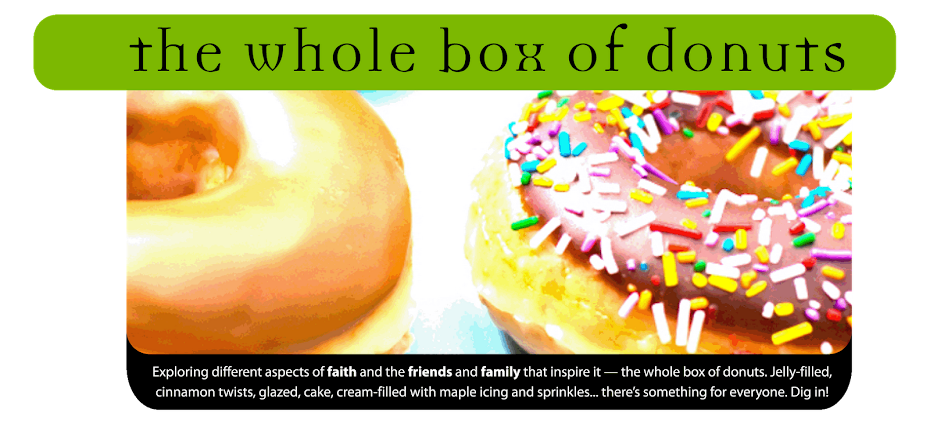You’ve seen this scene a thousand times, at least if you watch science fiction movies. Someone, usually the hero, opens a door (or walks out of the space ship or away from the fire...) and walks towards you, into the dark and out of the light, unscathed. Our hearts cheer with gladness that the hero has survived. The light behind him is bright — extraordinarily bright beams and rays of light, radiating outward, silhouetting him in the foreground. He is dark, with light glinting and shining around him. The shadow he casts is huge, a long, extended shadow in front of him, further accentuating him as he walks forward.
Here’s my question: What if I am that figure, standing in the doorway between God and the nonbeliever? In this case, the hero is the One who lights the way, not the one walking in that brightness. Does His light shine through me into the darkness? Or do I stop some of it? How do I become so transparent that I do not block any of God’s light? What does that look like, that I might decrease and allow Him to increase in such a way that I don’t get in the way? I know we’ll never be able to become completely invisible, and we’ll always leave some sort of shadow. God allows us to be the vessels that transmit His light, and I think He wants us to use our own talents and personalities to shape the message we are sharing. We will — and should — make an imprint on it. But I want the shadow people see when they look into my life to be God-shaped. I don’t want to let my own failings and inadequacies block His light. I want to transmit it. I want to let God shine, as He should. As He does. Shine brightly through me. Because that’s what people want to see — the true hero, not me.
There’s only one way I know to do this. Romans 13:12 tells us, “So let us put aside the deeds of darkness and put on the armor of light.” If we clothe ourselves in His word and wrap ourselves in His actions, the world will see Him in spite of ourselves.
Am I who I think I am?
“What kind of writing do you do?” she asks. She looks like a writer, with her hand-crafted glass necklace and her funky glasses. Quirky but interesting. Yeah, she’s legit. I’m at a writing workshop, fascinated by the guessing game I’ve played all morning. Who’s real? Who truly belongs here? Are there any other imposters?
I stammer, eventually deciding on, “I do copywriting, but primarily write non-fiction.” She nods acceptance.
Is it really that easy? And is it true? Am I a writer? Woven through every conversation at this workshop are polite questions designed to suss out how serious each person is about their craft. Can they sell it? Are they any good? But more importantly, will they see through me? Can I legitimately call myself a “writer”? Saying I’m a designer is easy. I have a framed diploma announcing my BFA in Graphic Design. But can I be a writer simply on my own say-so, simply because I know in my heart that I am?
The same could be asked about Christianity. It’s easy enough to profess one’s allegiance to Christ in a small circle of women gathered for Bible study. But what conclusion will someone draw from watching me, hearing me talk about my work, my family, and my life? And much more importantly, what conclusion does God draw from my life, from my private thoughts and behaviors? Am I truly who I profess to be? If I am, I won’t need to announce it in order for it to be true.
I stammer, eventually deciding on, “I do copywriting, but primarily write non-fiction.” She nods acceptance.
Is it really that easy? And is it true? Am I a writer? Woven through every conversation at this workshop are polite questions designed to suss out how serious each person is about their craft. Can they sell it? Are they any good? But more importantly, will they see through me? Can I legitimately call myself a “writer”? Saying I’m a designer is easy. I have a framed diploma announcing my BFA in Graphic Design. But can I be a writer simply on my own say-so, simply because I know in my heart that I am?
The same could be asked about Christianity. It’s easy enough to profess one’s allegiance to Christ in a small circle of women gathered for Bible study. But what conclusion will someone draw from watching me, hearing me talk about my work, my family, and my life? And much more importantly, what conclusion does God draw from my life, from my private thoughts and behaviors? Am I truly who I profess to be? If I am, I won’t need to announce it in order for it to be true.
Subscribe to:
Posts (Atom)
